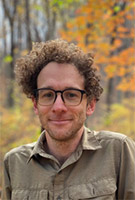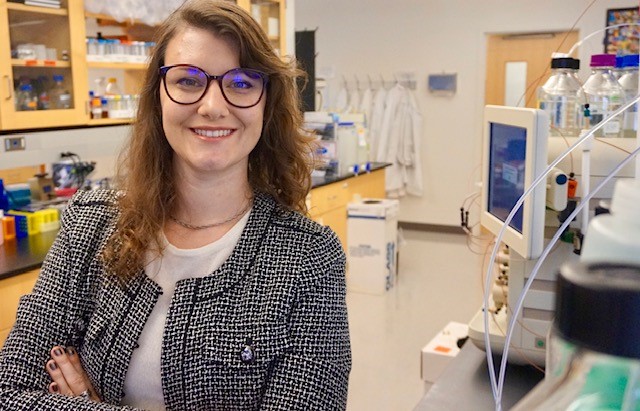Current Postdoctoral Research Associate Training (PRAT) Fellows
David Castellano
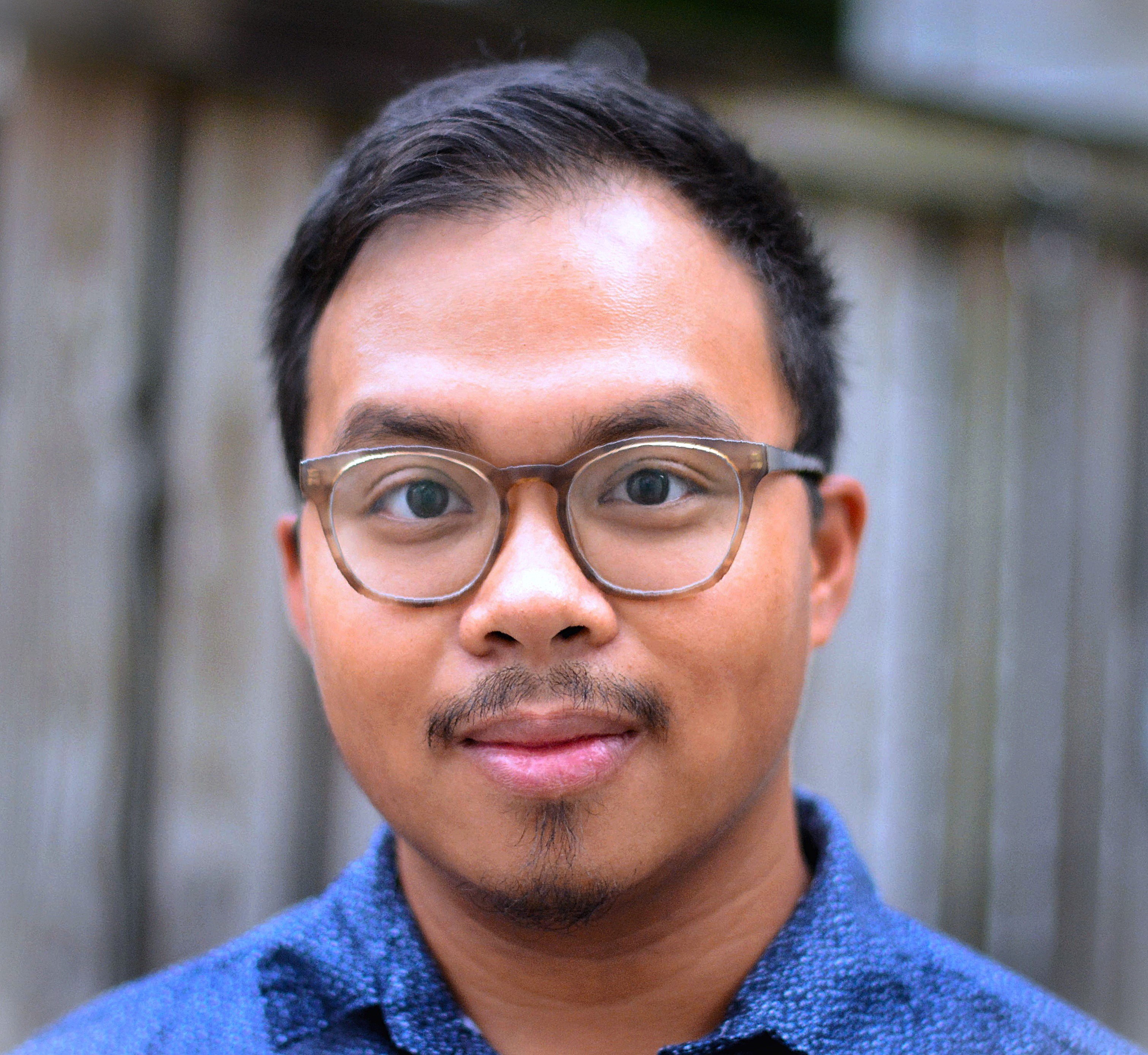
Dr. David Castellano is a PRAT fellow in the Stem Cell Translation Laboratory under the mentorship of Dr. Carlos Tristan at the National Center for Advancing Translational Sciences, where he leverages functional and multi-omic approaches to examine the sensitization of sensory neurons derived from human pluripotent stem cells. Dr. Castellano earned his Ph.D. at Georgetown University in the laboratory of Dr. Wei Lu at the National Institute of Neurological Disorders and Stroke through the NIH Graduate Partnerships Program, where he studied mechanisms of GABAA receptor function and inhibitory synaptic transmission. His long-term goal is to lead a research program utilizing iPSC-derived models to investigate the molecular mechanisms that regulate intercellular communication during development and disease.
Joseph Cleary
Joseph Cleary is a PRAT fellow in the laboratory of Dr. Antonina Roll-Mecak at the National Institute of Neurological Disorders and Stroke, where he studies how the chemical diversity of the microtubule cytoskeleton develops as neurons mature. This diversity arises through post-translational modifications (PTMs) of the microtubule C-terminal tail, which regulate the binding of microtubule effectors such as microtubule-associated proteins (MAPs) and motor proteins. These proteins are essential for transporting organelles throughout the cell, a process critical for maintaining cellular health and supporting proper neuronal maturation. By combining systematic knockdowns of key modifying enzymes with high-resolution microscopy and proteomics, his work is helping to unravel the interplay between microtubule post-translational modifications and neuronal health. Dr. Cleary earned his Ph.D. from Pennsylvania State University in the laboratory of Dr. William Hancock, where he applied high-resolution imaging to investigate the role of the GTPase cycle in microtubule stability. His long-term goal is to lead a research group focused on understanding the rapid turnover of cytoskeletal chemical diversity and orientation during cell reprogramming.
Ryan Cupo
Ryan Cupo is a PRAT fellow in the lab of Dr. Richard Youle at the National Institute of Neurological Disorders and Stroke where he studies mitochondrial nucleotides in Parkinson's Disease models. His current research spans from yeast, to drosophila, to mice, to human cells. Dr. Cupo completed his Ph.D. in Pharmacology in the Shorter Lab at the University of Pennsylvania, where he discovered the first human mitochondrial protein disaggregase, Skd3 (CLPB). Dr. Cupo's ultimate goal is to lead a robust research program studying mitochondrial biology in health and disease with an aim towards developing novel therapeutic strategies.
Claire Gao
Dr. Claire Gao attended the University of California, Berkeley for her undergraduate degree studying molecular and cellular biology. During her undergraduate years, she performed clinical research on patients with the neurometabolic disorder Niemann Pick Type C to investigate how a trial drug treatment could impact their quality of life and longevity. This sparked her interest in understanding the mechanisms behind the neural effects of these pharmacological treatments. She earned her Ph.D. in neuroscience in 2022 from the Brown University-NIH Graduate Partnership Program under the mentorship of Dr. Mario Penzo. Her thesis work focused on parsing out the molecular, anatomical, and functional organization of the midline thalamus. In 2023, Dr. Gao joined the laboratories of Drs. Michael Krashes and Andrew Lutas as a postdoctoral fellow to pursue her long-term goal of expanding the understanding of neural therapeutic targets in treating neurometabolic disorders. Her current project investigates the intracellular signaling mechanisms and neural basis of the anti-obesity medication semaglutide.
David Haggerty

David Haggerty, Ph.D., is a neuroscientist and postdoctoral fellow at the National Institute on Alcohol Abuse and Alcoholism (NIAAA) within the NIH. He is part of the Laboratory of Integrative Neuroscience, where he collaborates with Dr. David Lovinger to study alcohol-related neuroadaptations and their effects on motor behaviors that drive compulsive alcohol consumption. His research employs advanced techniques, including machine learning, to analyze real-time drinking behaviors and identify patterns that predict compulsive alcohol use. Dr. Haggerty earned his Ph.D. in neuroscience and bioinformatics at Indiana University School of Medicine, where his work focused on corticostriatal synapses and their role in binge drinking behaviors. Beyond his research, he is passionate about developing innovative tools and methods to enhance the understanding of neural circuitry and animal behavior. In his free time, Dr. Haggerty enjoys golfing and hiking in Maine.
Stefan Katharios Lanwermeyer
Stefan Katharios Lanwermeyer is a PRAT fellow in the lab of Dr. Anupama Khare at the National Cancer Institute where he studies polymicrobial interactions between bacteria that colonize the airways of people with cystic fibrosis. Stefan came to microbiology first by way of public health. After his MPH at the University of Michigan, he conducted epidemiological research of anthrax meningitis as an ORISE Fellow at the Centers for Disease Control and Prevention. Subsequent to this, he pursued his thesis work under George O'Toole at Dartmouth College where he studied the mechanisms that Pseudomonas aeruginosa uses to maintain biofilm. Stefan is broadly interested in how different bacterial species respond and adapt to another and the potential ecological and clinical implications of these interactions.
Ashira Lubkin

Ashira Lubkin is a PRAT fellow in the lab of Dr. Michail Lionakis at the National Institute of Allergy and Infectious Diseases. Ashira obtained her M.D./Ph.D. in immunology at New York University with Dr. Victor Torres, where she studied the role of leukocidins in Staphylococcus aureus pathogenesis. Her PRAT research in the Lionakis lab focuses on Candida albicans infection. C. albicans is the most common fungal pathogen causing human disease, but is also a commensal, living peaceably on several body sites. Oral candidiasis (or oral thrush) is worsened in the state of type II interferonopathy, where interferon-gamma levels are excessive, leading to barrier disruption. Ashira aims to understand how C. albicans responds to this environment to promote greater disease. This work may reveal mechanisms regulating the switch in C. albicans between commensal and pathogenic phenotypes, potentially leading to new therapeutic targets.
Ryan Marquardt
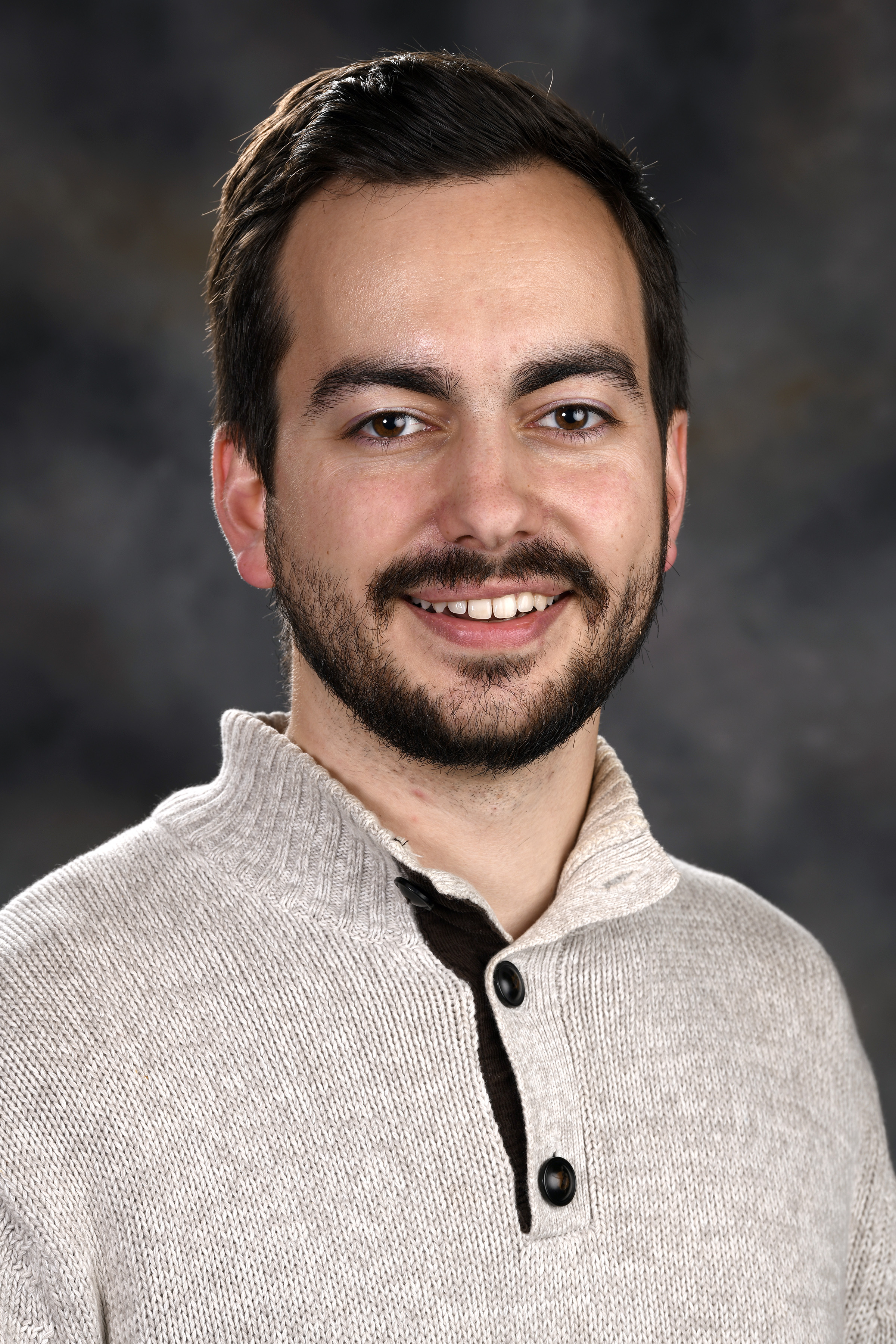
Ryan Marquardt is a PRAT fellow in the lab of Dr. Francesco DeMayo at the National Institute of Environmental Health Sciences where he studies the mechanisms of transcriptional regulation of the female reproductive tract in early pregnancy and in infertility-associated gynecological disease. He is especially interested in how steroid hormone signaling mechanisms are implicated in proinflammatory endometrial disease processes that underly conditions such as endometriosis, chronic endometritis, and Asherman’s Syndrome. His work is currently focused on analyzing the function of the transcriptional regulator serum response factor in the uterus using single cell transcriptomic analysis of genetically engineered mouse models and clinically-derived human cell models. Dr. Marquardt earned his Ph.D. at Michigan State University in the lab of Dr. Jae-Wook Jeong where he first got hooked on uterine biology while studying the role of the chromatin remodeling factor ARID1A in the endometrium. His long-term goal is to lead his own research laboratory with the mission of defining fundamental aspects of gynecologic health that are dysregulated in chronic inflammatory conditions in order to uncover root factors that predispose certain individuals to infertility.
Melesse Nune

Melesse Nune is a PRAT fellow in the lab of Dr. Susan Buchanan at the NIDDK where he studies the Structural basis for Rcs phosphorelay cascade. One of the key factors that contributes to Klebsiella pneumoniae’s pathogenicity is its ability to produce extracellular polysaccharide capsule in response to environmental stress. Capsule production is regulated by the Rcs regulatory phosphorelay cascade. Rcs cascade is inactive by default but becomes significantly activated when the bacteria experience environmental changes such as the presence of antimicrobials. Mechanisms underlying the activation/inhibition process are incompletely understood. Dr. Nune is dedicated to elucidating the molecular structures of pivotal proteins within the Rcs phosphorelay signaling cascade, employing cutting-edge techniques such as CryoEM and X-ray crystallography. The findings from this study lay the foundation for understanding the regulation of capsule synthesis in Klebsiella and may offer potential pathways for drug target studies. Dr. Nune earned his Ph.D. at Johns Hopkins School of Medicine in the laboratory of Dr. Cynthia Wolberger where he studied the roles of FACT and Ubp10 in histone deubiquitination and chromatin organization. His long-term goal is to lead an independent research group dedicated to investigating the structure and function of vital bacterial membrane proteins, particularly those implicated in nutrient and drug transport.
Publications:
Nune, M., Morgan, M.T., Connell, Z., McCullough, L., Jbara, M., Sun, H., Brik, A., Formosa, T., and Wolberger, C. (2019). FACT and Ubp10 collaborate to modulate H2B deubiquitination and nucleosome dynamics. Elife 8. pii: e40988. doi:10.7554/eLife.40988.
Stoudenmire, J.L., Schmidt, A.L., Tumen-Velasquez, M.P., Elliott, K.T., Laniohan, N.S., Walker Whitley, S., Galloway, N.R., Nune, M., West, M., Momany, C., et al. (2017). Malonate degradation in Acinetobacter baylyi ADP1: operon organization and regulation by MdcR. Microbiology 163, 789-803.
Yang, J., Nune, M., Zong, Y., Zhou, L., and Liu, Q. (2015). Close and Allosteric Opening of the Polypeptide-Binding Site in a Human Hsp70 Chaperone BiP. Structure 23, 2191-2203.
Galloway, N.R., Toutkoushian, H., Nune, M., Bose, N., and Momany, C. (2013). Rapid Cloning For Protein Crystallography Using Type IIS Restriction Enzymes. Crystal Growth & Design 13, 2833-2839.
Jong Park
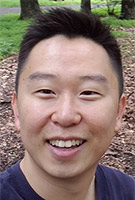
Jong Park is a PRAT fellow in the laboratory of Dr. Brant Weinstein at the Eunice Kennedy Shriver National Institute of Child Health and Human Development (NICHD), where he studies the specialized gas-exchange endothelium of the zebrafish gill. Dr. Park's research aims to use the experimentally accessible zebrafish gill endothelium to establish a comparative vertebrate model for mammalian lung endothelium. Dr. Park earned his Ph.D. at the University of Maryland Baltimore County in the laboratory of Dr. Rachel Brewster, where he investigated the functional role of a hypoxia-responsive gene, ndrg1a, in the zebrafish embryonic kidney. His long-term goal following the PRAT fellowship is to lead his own lab investigating the mechanisms of physiological and pathological responses to hypoxia.
Julian A. Rey
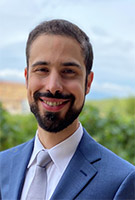
Julian A. Rey is a PRAT fellow in Peter Basser's lab at the Eunice Kennedy Shriver National Institute of Child Health and Human Development where he develops techniques to estimate the mechanical properties of brain tissue and biomimetic hydrogels noninvasively with MRI. Mechanical property fields (e.g., tissue rigidity, interstitial flow, internal stresses, etc.) are an exciting class of imaging biomarkers with the potential to inform early detection and treatment of brain cancer and neurodegenerative disease. His focus is investigating how structural and fluid components of the brain determine its bulk mechanical response in order to derive mechanical properties of these components from MRI measurements of brain motion. Dr. Rey earned his Ph.D. at the University of Florida in Malisa Sarntinoranont's lab where he developed computational mechanical models to 1) predict internal stresses and interstitial flows in rat brain tumors and to 2) evaluate mechanisms that may explain glymphatic flow and amyloid-beta clearance in the rat brain. His long-term goal is to lead an independent research group that will advance imaging and computational modeling methods to analyze mechanical changes in the brain, methods which will ultimately translate into novel diagnostic and therapeutic approaches for brain cancer and neurodegenerative disease.
Leslie Ronish
Leslie A. Ronish is a PRAT fellow in the lab of Lauren Porter at the National Library of Medicine and National Heart Lung Blood Institute where she studies protein folding dynamics by identifying fold-switching proteins in the NusG family using Fluorescence Lifetime Imaging Microscopy (FLIM) concurrently with Förster Resonance Energy Transfer (FRET). Dr. Ronish’s work aims to understand how fold-switching evolved and the implications of novel fold-switching proteins on human health and disease through characterization using biophysical and biochemical techniques alongside structural studies by x-ray crystallography. Dr. Ronish earned her Ph.D. at University of Nebraska-Lincoln in the lab or Kurt Piepenbrink where she studied the role of Type IV pili in pathogenesis of Acinetobacter baumannii and Clostridiodies difficile, specifically the structural differences between these bacteria that lead to multidrug resistant pathogenic strains. Dr. Ronish’s career goals are to continue to work on problems with a direct impact to human health through identification and structural characterization of novel proteins important in human genetic disease or bacterial pathogenesis.
Elisha Segrist

Elisha Segrist is a PRAT fellow in the lab of Dr. Yasmine Belkaid in the Laboratory of Host Immunity and Microbiome at NIAID. Elisha obtained her Ph.D. in Cellular and Molecular Biology with an emphasis in Microbiology, Virology, and Parasitology at the University of Pennsylvania under the mentorship of Dr. Sara Cherry. Her dissertation research focused on understanding how the gut microbiota shaped viral acquisition through interactions with innate immune sensors in the intestinal epithelium. In the Belkaid lab, Elisha's work has focused on understanding how endogenous retroviruses shape immunity and function of the female reproductive tract. Her long term goal is to have her own research program to uncover how local factors alter immunity and disease susceptibility of the female reproductive tract.
Ryan Tyler
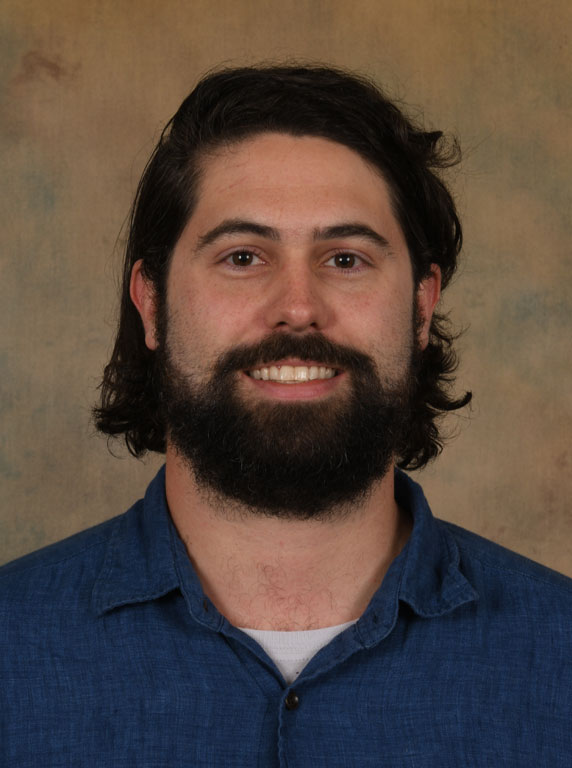
Ryan Tyler is a PRAT fellow in the lab of Dr. Lorenzo Leggio at the NIDA/NIAAA IRP where he studies the effects of environmental enrichment (i.e., a stimulating, engaging, and novel environment as opposed to a dull, barren, and static environment) on clinically relevant outcomes for people with alcohol use disorder (AUD). This is the first study to translate the promising findings of environmental enrichment from animal models to humans with AUD. Dr. Tyler received his Ph.D. from the University of North Carolina, Chapel Hill under the mentorship of Dr. Joyce Besheer where he used drug discrimination methods to investigate the impact of traumatic stress exposure to the interoceptive effects of alcohol in rats. His long-term goal is to run a translational research lab at a university.


